Petition to safeguard the EU Directive on anti-discrimination
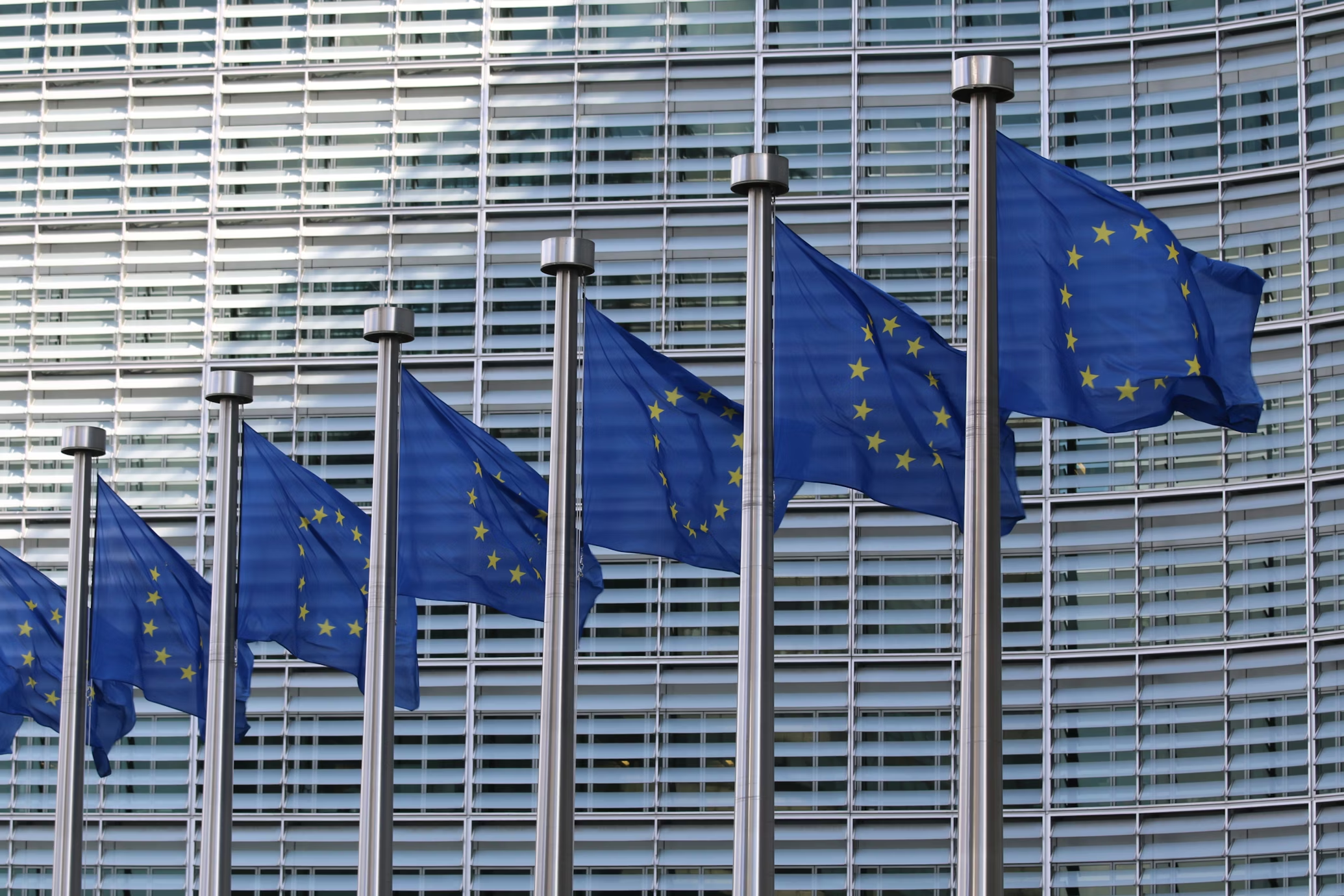
In a move that has raised significant concerns among human rights organisations, the European Commission has announced it plans to withdraw the proposed Horizontal Equal Treatment Directive, a legislative measure aimed at strengthening anti-discrimination protections across the European Union.
How the Directive should protect your rights
This directive represents a commitment to combat discrimination in various sectors of public life, including access to healthcare, education, housing, and social benefits. It is particularly vital for protection against discrimination based on religion or belief, disability, age or sexual orientation, and is a baseline to further expand comprehensive protection to all groups at risk of marginalisation across all areas of life.
This decision comes at a time when far-right forces are gaining momentum in the EU and beyond, posing a significant threat to democracy, equality, and human rights across the continent. Instead of taking decisive action to protect groups at risk of marginalisation—including LGBTI people, older and younger people, persons with disabilities, religious minorities and those at the intersections of discrimination, including racialised people—the European Commission has chosen inaction, sending a dangerous message that equality is negotiable.
Background on the Directive
In 2008, the Commission proposed a Council directive aimed at extending equal treatment protections beyond the workplace. However, the proposal has been stalled for years due to a lack of unanimous agreement among EU member states, with only a few countries such as Czechia, Germany, and Italy blocking it before the Commission ultimately announced it would withdraw the proposal. As a result, millions of people remain vulnerable to systemic discrimination, and a hierarchy of protection has emerged, where some forms of discrimination are addressed more comprehensively than others.
The European Commission’s planned withdrawal of the Horizontal Equal Treatment Directive represents a pivotal moment for anti-discrimination efforts within the EU. At a time when human rights protections should be strengthened, the EU cannot afford to retreat.
Sign the petition
By signing this petition, you join the call for European leaders to reaffirm their commitment to a Union of Equality. Demand that they reject any regression in anti-discrimination laws and work towards strengthening protections for all people.
The petition is available in Italian, French, German, and Portuguese.
LGBTI rights are human rights
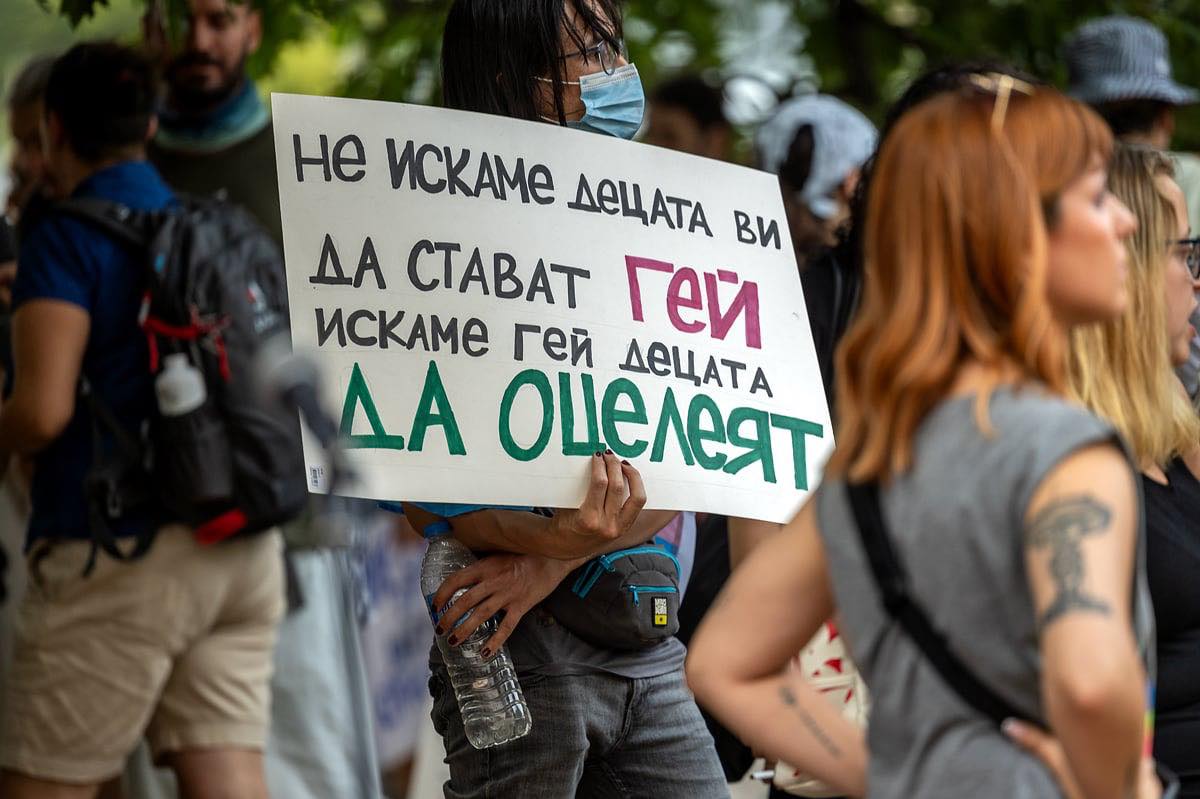
On Human Rights Day we reflect on struggles and milestones for the European and Central Asian LGBTI movement in 2024.
Human Rights Day reminds us of the universality of human rights: freedoms that belong to all people, no matter their identity. This principle is at the heart of the LGBTI movement, as LGBTI rights are human rights. In 2024, these rights were both challenged and celebrated, often reflecting broader societal shifts.
Across Europe and beyond, anti-LGBTI measures highlighted the fragility of hard-won freedoms. Georgia adopted both a “foreign agent” law and an “anti-LGBTI propaganda” law, echoing a troubling global trend of restricting civil society and stifling dissent. On December 2nd, the restrictive law came into force, banning legal gender recognition and equating same-sex relationships with incest, further institutionalising discrimination against LGBTI communities. The law also declared May 17 a holiday opposing the International Day against Homophobia, Transphobia, and Biphobia, amplifying the state’s anti-LGBTI stance. Bulgaria introduced laws targeting the discussion of LGBTI issues in schools, marking another attack on both education and freedom of expression. In Russia, the international LGBTI movement was branded as “extremist” in late 2023, but 2024 saw the first convictions under this extremist label, intensifying the risks for activists and organisations. Kyrgyzstan followed suit by enacting a Russian-style “foreign agents” law in April, subjecting non-profits to extensive state oversight and jeopardising the work of press freedom groups and civil society, including LGBTI organisations.
These developments show how attacks on LGBTI rights often signal deeper human rights violations. In Turkey, trans rights faced severe setbacks with new regulations restricting access to essential hormones, disproportionately affecting trans masculine people and those in poverty. Police repression of LGBTI demonstrations further highlighted the shrinking space for activism and public dissent. The suppression of freedom of speech, association, and democratic principles often accompanies discrimination against LGBTI communities. As such, defending LGBTI rights is part of defending the foundations of democracy and equality for all.
Progress, despite setbacks
Despite these setbacks, 2024 was also a year of hope and progress. Germany’s adoption of a self-determination law marked a major step forward for trans and non-binary people, simplifying legal gender recognition. Greece joined the growing list of European countries recognising equal marriage, while Malta’s introduction of non-binary markers on official documents underscored its commitment to inclusivity.
Beyond Europe, global human rights institutions also made strides for LGBTI people. The UN Human Rights Council adopted a resolution affirming the rights of intersex people, a relevant step in recognising and addressing the unique challenges they face. The European Court of Human Rights ruled that Poland must provide legal recognition for same-sex couples, and the Court of Justice of the European Union declared that Romania must respect gender recognition granted in other countries.
Ensuring no one is left behind
These moments of progress illustrate that advancing LGBTI rights benefits societies as a whole. Laws that affirm equality and dignity strengthen the social fabric, ensuring that no one is left behind. This year’s developments—both the setbacks and the victories—show that progress is possible, but it requires vigilance, solidarity, and collective action.
In February 2025, ILGA-Europe will publish its Annual Review, documenting these and other critical moments from the past year. Stay tuned!
Our municipalities are the ultimate game changers for LGBTI equality
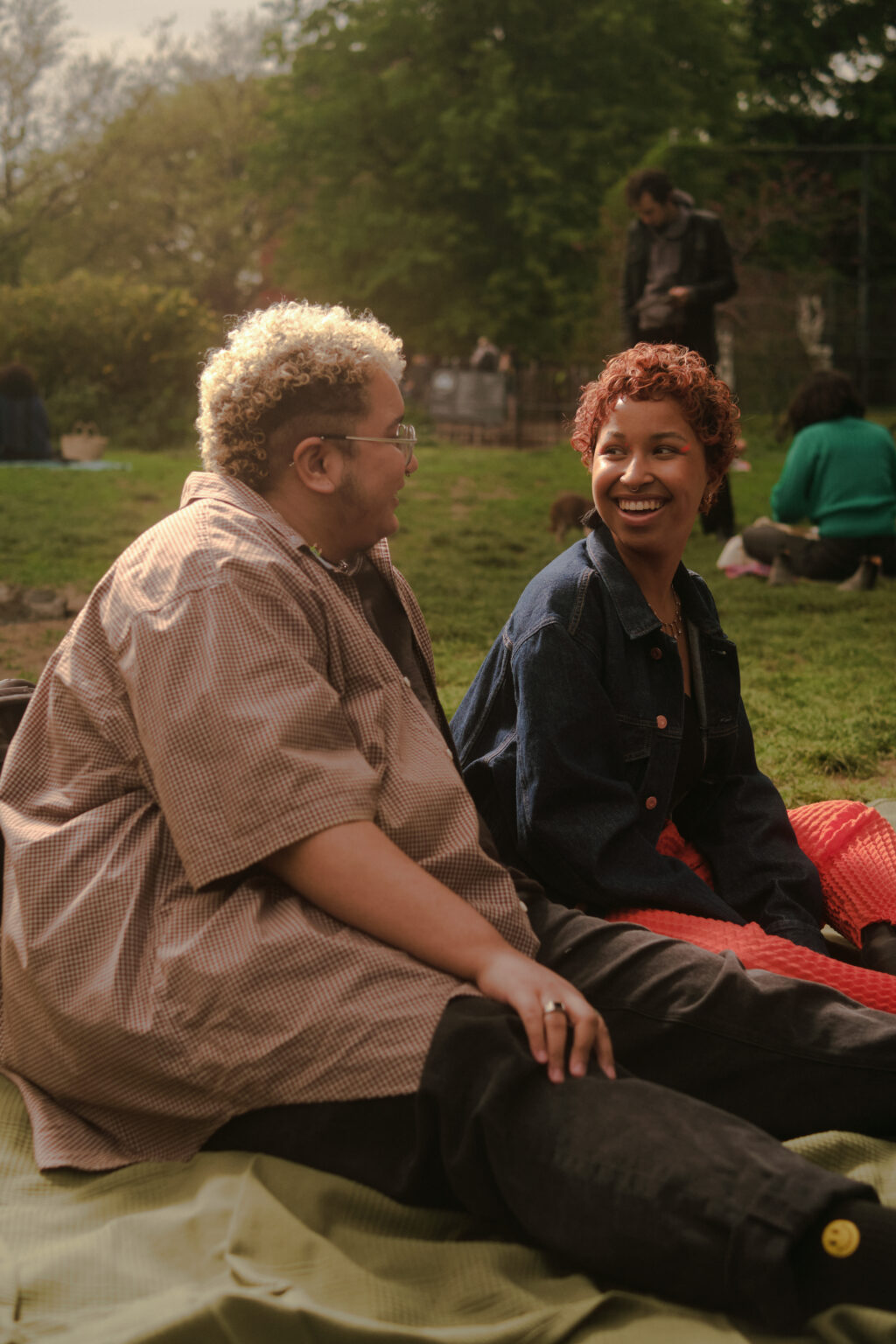
Equality advocates strive to influence positive change at national levels, but it’s in our towns, villages and cities where these changes are experienced.
Positive change for LGBTI people is often thought of on the macro scale. Civil society organisations work hard alongside institutions, representatives and governments so we all push together in the right direction. But these efforts must boil down to the day-to-day lives of LGBTI people. Ultimately, it’s the safety and freedom of LGBTI people to be who they are in the villages, towns and cities they live in what is at stake.
Municipalities, often an overlooked level of government, is the level that is closest to people’s daily lives. It is the place where all the significant legal recognitions are implemented, where change is filtered down and becomes real. Whether it is altering your gender marker on your documents, whether it is where you are educated or want to have your children educated, whether it is the health services you access, or how your communities are shaped, city level is where so much of it comes together.
So, the importance of engaging municipalities on LGBTI rights and equality is enormous. It’s particularly important in the localities of countries where many of the positive legal developments have happened. But how does a local government translate the full ambitions of a law that sets out to give LGBTI people rights so that they actually change lived realities?
We have seen a recent example at the second edition of the European Capitals of Inclusion and Diversity Awards, where two ILGA-Europe board members participated on the jury. The city of Gdańsk in Poland won a special recognition for fostering LGBTIQ equality with its numerous initiatives involving inclusive public services and support for victims of discrimination. This Polish city shows us that even in difficult national contexts for LGBTI people, positive leadership at a municipal level can enhance instead of limiting lives. It teaches us how important these kinds of tools are for local governments who wish to foster inclusion.
The municipal level is not only about politics and legislation though; it is also where community happens. At a time when democracy and human rights come under challenge in so many parts of our region, cities have a crucial role to play in ensuring that LGBTI people, who are active citizens contributing to the community, can be protected and cared for in their daily lives.
This blog is adapted from our Executive Director, Evelyne Paradis’s foreword to ‘Rainbow Cities in Action: Policy Guidelines for Municipalities’ by Rainbow Cities Network.
Rainbow Cities Network (RCN) is an international network of municipalities who have adopted a dedicated LGBTIQ policy, actively working against discrimination and for equal rights of lesbian, gay, bisexual, trans, intersex and other queer people (LGBTIQ) in their cities. Founded in 2013, its goal is to bring together cities engaged in implementing municipal LGBTIQ policies and to strengthen local LGBTIQ work through the exchange of experience, expertise and good practices.
The Frontline: The World Cup Rainbow Divide
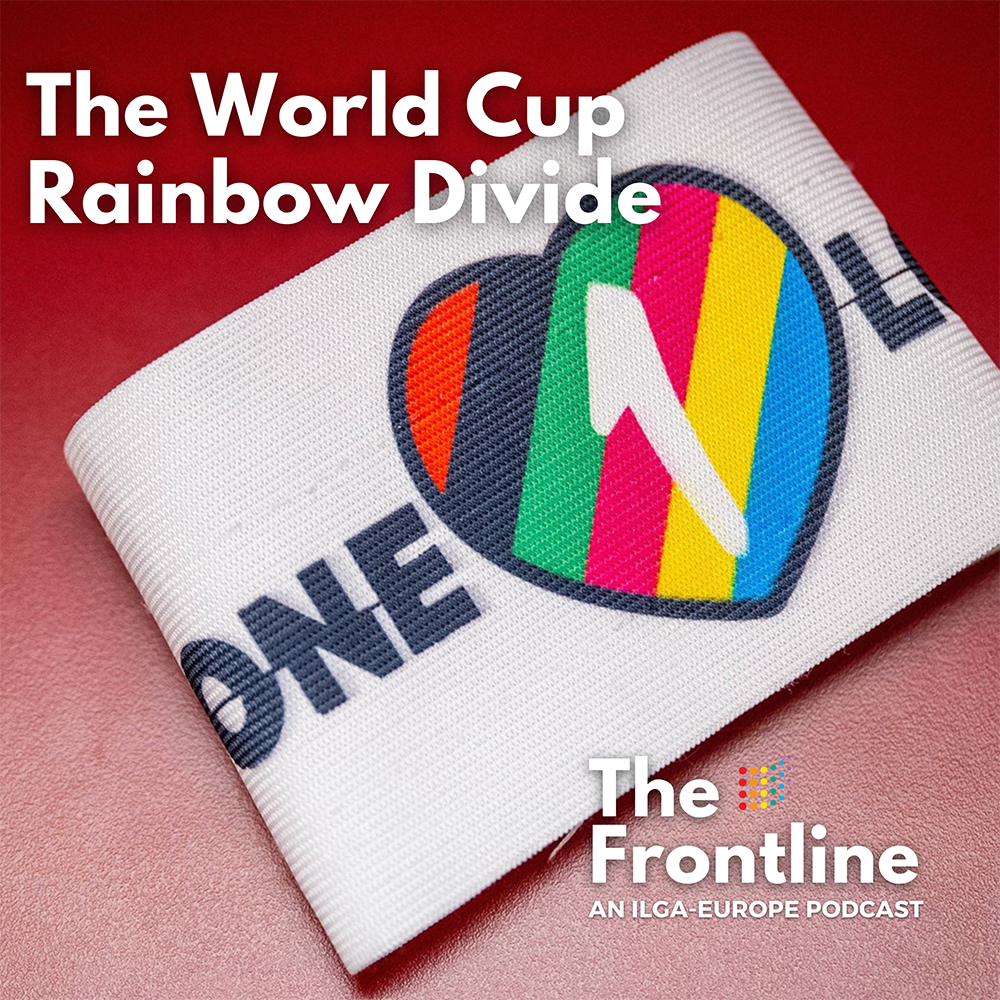
The big story at the beginning of the World Cup 2022 centred on FIFA banning all players on European teams from wearing the ‘One Love’ armband during matches, highlighting the human rights situation for LGBTI people in Qatar.
But what happens when diverging opinions on LGBTI issues become the leading stories surrounding a major sporting event like the World Cup? Do these stories serve the LGBTI communities in countries where people are at risk? Do they serve the greater goals of the LGBTI movement for equality? Or is the focus on LGBTI people and LGBTI issues not creating a Rainbow Divide, in which the human rights of one group are separated from the human rights of all?
This episode of The Frontline will explore the complexities around singling out of LGBTI rights at the Qatar World Cup, when so many other human rights abuses are taking place in the country, if it further fuelled an ‘us and them’ human rights narrative, and what responsibility lies with the media in the reporting of this and other LGBTI centred stories.
Our guests are Ryan Heath, Editorial Director with Politico; Gurchaten Sandhu, Director of Programmes at ILGA World, and the Executive Director of ILGA-Europe, Evelyne Paradis.
Listen to the episode below or follow this link to find it on your favourite podcast platform.
The Frontline: Elif Shafak and the Power of Our Stories
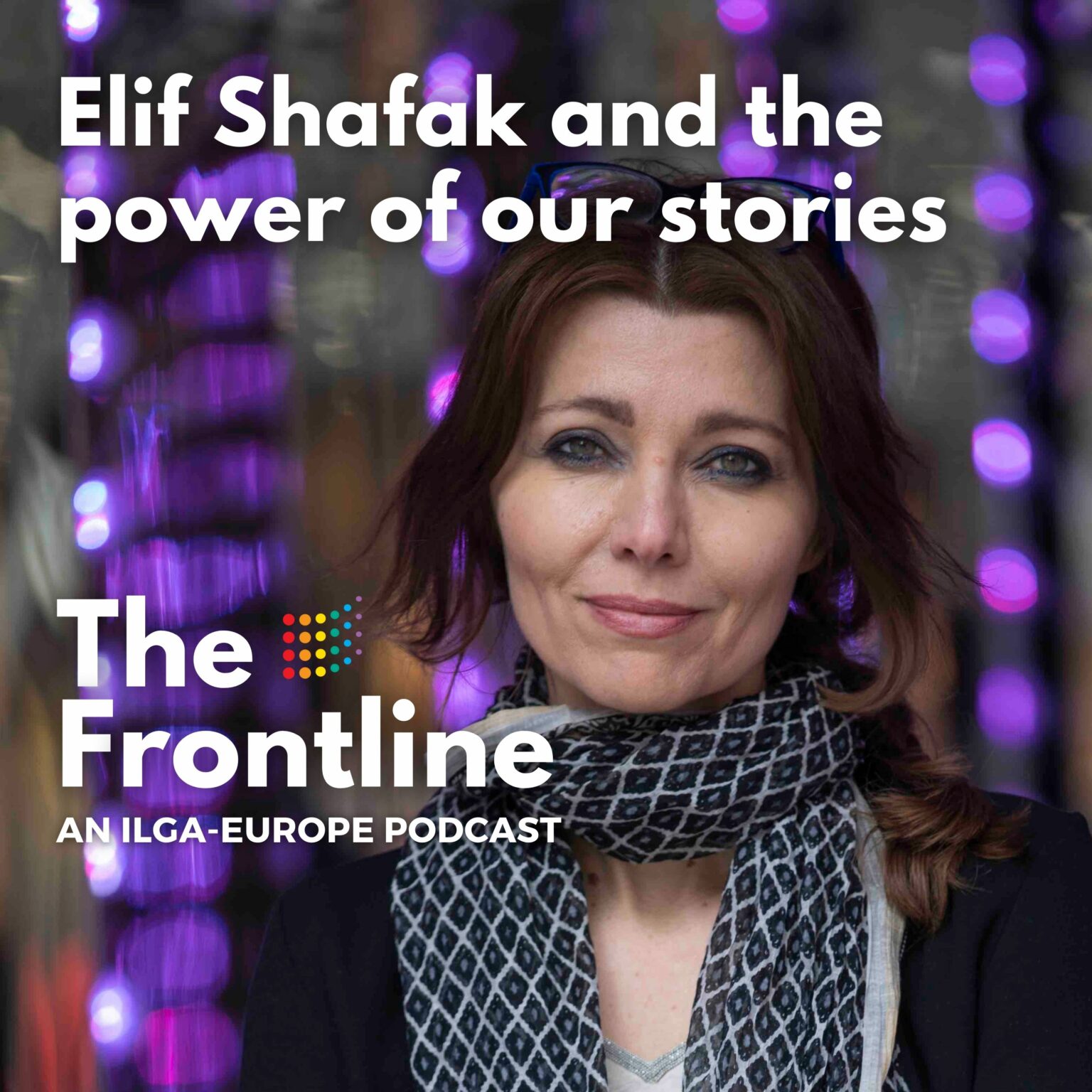
The author of 18 books of fiction and non-fiction, including The Bastard of Istanbul,Honour, and Three Daughters of Eve, Elif has come under fire from the Turkish authorities for writing about human rights abuses that its government denies. Her most recent novel, 10 Minutes 38 Seconds in this Strange World, which tells the story of a sex worker in Istanbul, was shortlisted for the Booker Prize in 2019. It sparked another investigation by Turkish prosecutors for addressing child abuse and sexual violence in her writing.
Elif joins ILGA-Europe’s Executive Director, Evelyne Paradis to talk about a widespread decline of democracy, the fight for LGBTI rights and equality, the power of our stories and her own journey towards being a vocal member of the LGBTI community.
Listen below or click here to listen and subscribe to The Frontline on your favourite podcast platform.
One in four MEPs committed to work on LGBTI equality in new European Parliament
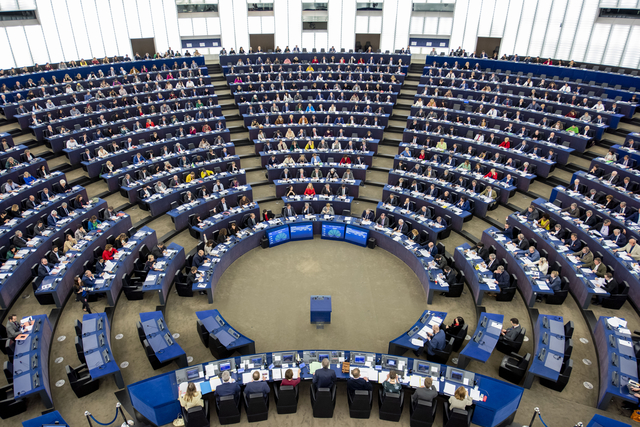
With the highest voter turnout the European elections has seen since 1994, so too arrives the largest number of MEPs elected committed to LGBTI equality.
ILGA-Europe is ready to work with the 215 MEPs from eight different political groups who signed our ComeOut pledge and thus promised to actively protect and progress the human rights of all LGBTI people in Europe and beyond concretely at EU level.
“There is both a strong will and urgent need for LGBTI equality to be a definitive political priority over the next five years at EU level. This is clear, not just from the sheer number of MEPs that have pledged to work with us, but also from commitments made by the main political party leaders. A first crucial order of business is to harness all this support to make sure that LGBTI equality features explicitly as a priority of the next EU Commission in the form of a robust and comprehensive EU strategy on LGBTI human rights.” said ILGA-Europe’s Executive Director, Evelyne Paradis.
With over 1650 candidate signatures across all EU Member States, ILGA-Europe’s ComeOut campaign showed how much support for LGBTI equality has grown within the EU, and this amidst an increasingly polarised social and political climate at both national and supranational levels.
“It is truly encouraging to see the large number of candidates from many different political groups who rallied around our call for equality. In today’s world, cross-party support is the best response to anyone who fuels polarisation and division. It is a clear sign that our work is about standing up for inclusive and fair societies” said Paradis. “We look forward to working with our ComeOut elected MEPs through a re-established LGBTI intergroup which will not only ensure solid, strategic and meaningful collaboration across parties, but also hopefully build strong alliances with other groups in the Parliament to secure human rights, freedom and equality for all in the EU.”
What can MEPs who signed the ComeOut pledge concretely do to advance LGBTI equality?
Over the next five years, we will need strong efforts from the European institutions, ensuring full protection against discrimination for LGBTI people and finally advancing the protection of human rights of trans and intersex people.
ILGA-Europe needs our supporters to lend all their support to ensure that the EU Commission adopts a strong EU strategy on LGBTI equality. Within this framework, we will need the active support of MEPs on the following specific policy and legislative priorities as outlined via ILGA-Europe’s ComeOut pledge:
- Work to close gaps in legal protection on grounds of sexual orientation, gender identity and sex characteristics in the areas of anti-discrimination, hate crime and hate speech
- Support adoption of concrete policies for trans and intersex people in the EU
- Ensure that concrete measures are taken to effectively stop online hate speech, including against LGBTI people
- Ensure the adoption of measures which raise protection for LGBTI asylum seekers, including the adoption of the reformed Common European Asylum System
- Ensure the effective implementation of last year’s Coman judgement which confirms that freedom of movement should be equally available to same-sex couples and their families
- Support the work of LGBTI organisations and human rights defenders by ensuring continued, accessible EU funding, by actively challenging any restrictions to civil society space and to the rule of law, and by holding EU member states accountable to their commitments.
- Bring underrepresented voices of the LGBTI community to the table, and raise awareness about their issues placed on the EU agenda.
- Harness their influence as an MEP to advance human rights, equality and inclusion for all both within and beyond the EU, whilst engaging with activists and civil society organisations is crucial.
Health4LGBTI: Reducing health inequalities experienced by LGBTI people
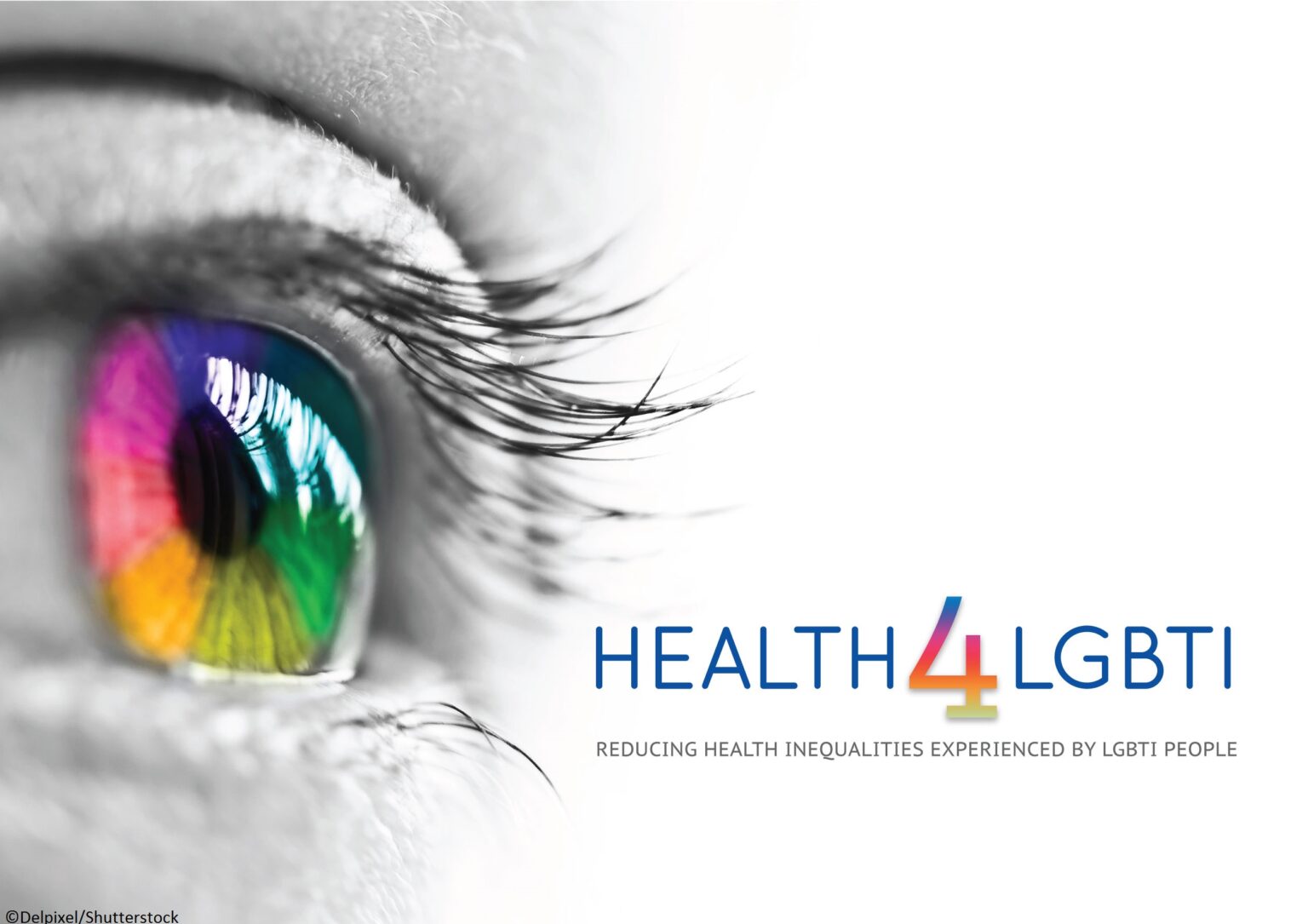
Health4LGBTI is an EU funded pilot project aiming at reducing health inequalities experienced by LGBTI people. It has been implemented between March 2016 and March 2018.
ILGA-Europe was part of the Consortium that under a service contract with the European Commission has explored the health needs and challenges faced by LGBTI people and analysed the key barriers faced by health professionals when providing care for LGBTI people.
General information about the project
The aims of the Health4LGBTI pilot project are to raise awareness of the specific health inequalities and barriers experienced by LGBTI people and to increase understanding of how best to reduce them; focusing on overlapping inequalities stemming from discrimination and unfair treatment on other grounds. The project also aims to provide European health professionals with relevant tools to allow them to develop the right skills and knowledge to overcome these barriers.
The other Consortium partners include AOUI-Verona (Italy, project coordinator), University of Brighton (UK), the National Institute of Public Health – National Institute of Hygiene (Poland) and EuroHealthNet.
For more information, visit the European Commission’s website page about the project.
Project activities
The project explored some of the particular health needs and challenges faced by LGBTI people and analysed the key barriers faced by health professionals when providing care. A variety of activities took place including:
- A state-of-the-art study of the health inequalities experienced by LGBTI people and the barriers faced by health professionals in providing healthcare for LGBTI people;
- 12 focus group studies (2 focus groups in each of the 6 participating EU Member States: Poland, Italy, UK, Belgium, Bulgaria, and Lithuania) to map the barriers faced both by LGBTI people and health professionals;
- The development of a modular training course aimed at increasing the knowledge, attitudes, and skills of healthcare professionals when providing care for LGBTI people;
- The piloting of the training course in the same Member States where the focus groups were conducted, in order to fine-tune and finalise the modules;
- A final European conference, which was part of the dissemination efforts to raise awareness of the topic and of the training course in particular.
Key findings
Although situations vary across Member States, the state-of-the-art study and focus group studies confirmed the existence of health inequalities, barriers, and discrimination LGBTI people experience that have an impact on their health outcomes. Key findings included:
1. Root causes likely to contribute to the health inequalities of LGBTI people are:
- prevailing cultural and social norms that assume people are non-LGBTI by default;
- minority stress associated with an individual’s LGBTI identity;
- victimisation;
- discrimination (individual and institutional), and;
- stigma.
2. LGBTI people face significant mental and physical health inequalities and are at higher risk of poor mental health compared to the general population, including higher incidence of suicidal thoughts, substance misuse, anxiety, and deliberate self-harm.
3. LGBTI people face barriers when accessing healthcare, the most significant ones are:
- prejudicial attitudes and discriminatory behaviour of healthcare staff compounded by their use of heteronormative language and documentation;
- fear surrounding the disclosure of their gender identity, sexual orientation, or sex characteristics;
- lack of consistency and continuity in the care provided to LGBTI people;
- lack of knowledge and recognition of the specific health needs of LGBTI people;
- implicit and explicit LGBTI-phobia where LGBTI people report being denied access to health services due to their sexual orientation, gender identity, or sex characteristics.
4. Many health professionals lack knowledge and cultural competence around the lives and healthcare needs of LGBTI people. Medical literature regarding the health of LGBTI people needs to be updated and health professionals’ assumptions should be questioned such as assuming that people are non-LGBTI by default; that being LGBTI is not relevant for healthcare providers; and beliefs that LGBTI people do not experience significant discrimination.
5. All groups within LGBTI communities (and particularly bisexual, trans, and intersex people) encounter their own specific barriers, and healthcare professionals’ knowledge of these groups is limited.
6. Although scarce, examples of promising practice meeting the needs of LGBTI people do exist. The state-of-the-art study revealed significant gaps in research. For example, there is very limited research to understand the general health profile of trans and intersex people, their experiences, as well as their physical and mental health needs. Similarly, further research adopting an intersectional perspective on health inequalities experienced by LGBTI people is required.
Training course
Findings from the state-of-the-art study and focus group studies were used to develop a dedicated training course for healthcare professionals aiming to increase their skills, knowledge and competences when providing care for LGBTI people. The course, comprising four training modules, is aimed at all health professionals regardless of their specialisation or experience of working with LGBTI people, and can include administrative staff (or similar) working in health settings.
The training modules were piloted in the same countries as the focus group studies, and fine-tuned based on feedback. The training is formulated in such a way as to facilitate replication on a large scale in many different European countries.
The training package can be downloaded here.
Training medical professionals on LGBTI inclusive practices works!
Published in December 2019, this paper describes the training methods and impacts of the #Health4LGBTI research project to develop training materials for healthcare providers. Results indicate that training participants increased their understanding, sensitivity, and empathy with LGBTI people seeking healthcare across all sites for the training.